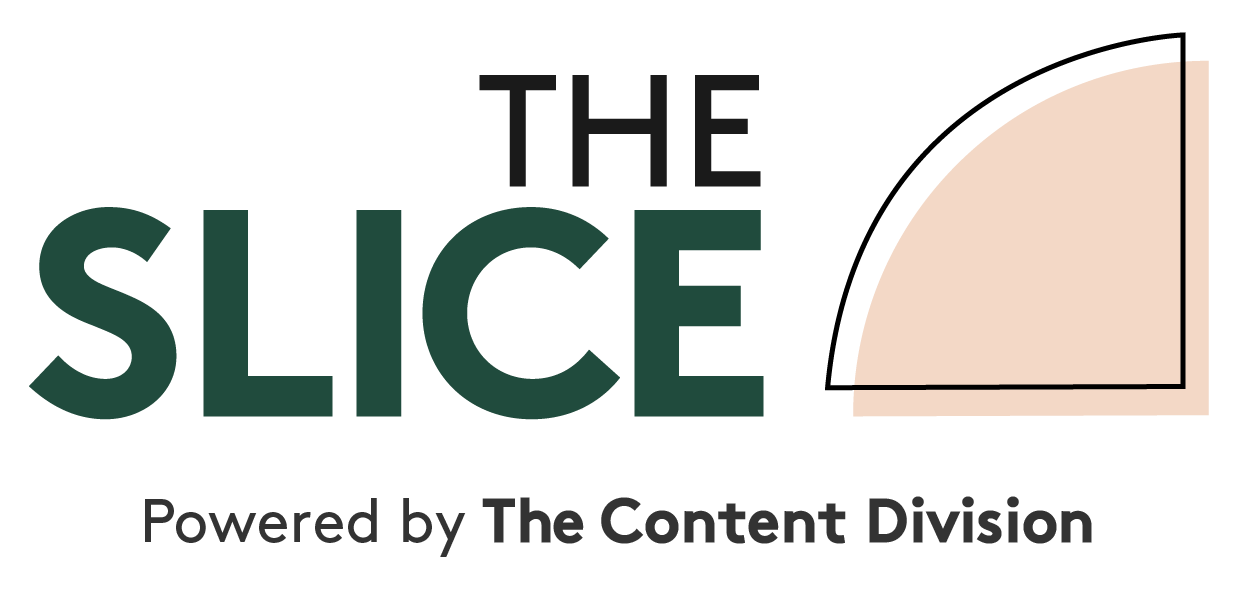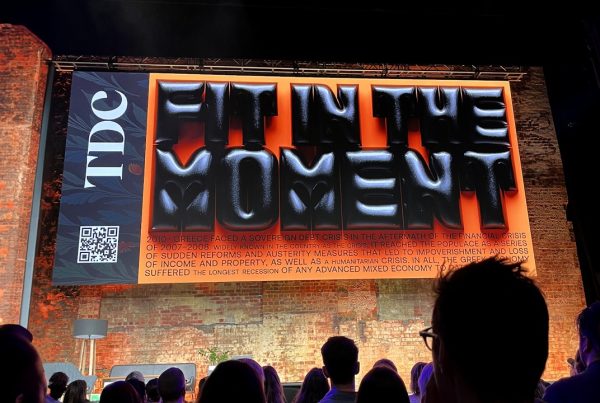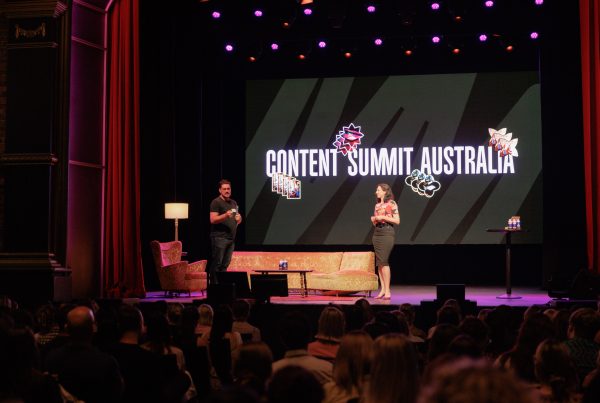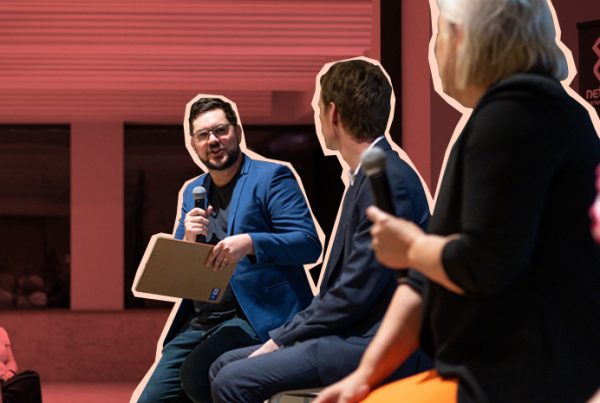
This year’s Something Digital event was a great example of how to hold an event in a post-pandemic world. In fact, #SD2020 was the first in-person innovation event in Australia since COVID-19 began. It was incredible to see how the organisers, speakers and panel facilities adapted to pull together a festival of this scale and nature in Brisbane.
The three-day event was held in-person at multiple venues across the city, as well as live streamed via a virtual hub, making it a truly hybrid event. The stand-out line-up of speakers featured a lot of Brisbane talent – including our very own Kurt Sanders – as well as talent around the world, with topics that are gaining more and more importance in today’s digital world.
Naturally, in our commitment to further the industry, we also sponsored the drinks.
Woohoo time for REAL LIFE Networking drinks thanks to the awesome peeps @TheContentDiv … It’s been a long time between drinks. 7 months to be exact. @sanderlands @Brittanieanne_ 🍻🥂
— Something Digital (@SD_BNE) October 20, 2020
Here are six of our key takeaways:
If we don’t support trusted news sources, we’ll lose them
This panel raised the issue of seeking truth in misinformation. In today’s 24-hour news cycle, reduced investment in bad journalism and platform manipulation, how much is the click-bait culture impacting misinformation and what’s the solution?
Hayden Delayney from HopgoodGanim said the most significant challenge in fighting misinformation is the great oversight over the algorithms that show us what we see. “Representative democracy is essential. The pharmaceutical industry is regulated, but it still respects the notion that they are commercially viable. We need more regulation over these algorithms.”
Liz Minchen from The Conversation explained that 2020 has been an incredibly challenging year for media around the world. “Support trustworthy information. Reader donations are more important than ever. If you have sources of news that you trust, support them. As The Saturday Paper says, the only free press is the one that you pay for.”
For #SD2020 antidote to #misinformation, @ConversationEDU is 1 solution: you can check author disclosures & more
— Liz Minchin (@LizMinchin) October 20, 2020
But to steal @SatPaper’s slogan: “the only free press is the 1 you pay for”. Whether it’s them, @ConversationEDU, @IndigenousX or others, back media you think matters https://t.co/HW3LiRHhGZ
Susan Forde from Griffith University’s Centre for Social & Cultural Research says click-bait is dangerous because it starts to construct our society around shallow cultures and ways of thinking that are not necessarily good for us. “We need to change the economic structure of media outlets so that they are not reliant on eyeballs. We need to elevate the importance of misinformation. And if you don’t want to see click-bait in the news? Don’t click on it. Choose to read more investigative stuff.”
To counter clickbaity media, we as readers need to click & consume on the serious, long-form, researched pieces, news and media rather than the clickbaity stuff we are so used to clicking on. That’s not what is popular but that behaviour change is needed. #SD2020 #misinformation
— Liquid Interactive (@_LiquidInt) October 20, 2020
David Douglas from CSIRO agrees that media outlets are incentivised to produce click-bait and content sensational stories. “Machine learning will just feed you more. Part of the problem is that platforms are designed to maximise engagement. YouTube wants you to stay on YouTube. We need to design platforms that prioritise other goals such as reflection, source and attribution. We need trained AI to produce human quality news stories.”
In the tech and digital world, there is still a lot of discrimination in the workplace
This panel discussed the challenges faced by women in tech, women in general and even men who struggle with workforce challenges. Even though we are living in a woke society, there is still a thin line between offending people and making an honest mistake or asking something out of curiosity.
When asked at what point your identity creates a victim mentality, Isaac Coonan from Brisbane EDA said slipping into a victim mentality is an issue. “The individual has to pull themselves out of it, but everyone can support. We need to make sure that level of pain and diversity is felt.” He added that there is no radical social policy that can be implemented to fix this issue. “It’s not a policy conversation, it’s a holy-crap-look-how-good-we-are-when-we’re-together conversation.”
Brooke Jamieson from PlaceOS said one way for the conversation to change is to audit what language we are using in performance reviews. “If all women are bossy but all men are leaders, there is a problem. Think about what words you would like used? These are small changes you can make at your level.”
Lisa Renneisen from Something Digital said she would love to see these issues stamped out, and added that we need to recognise and celebrate when things go right. “Acknowledge and congratulate people when things are done well, not just complain when things don’t go the way we want.”
Digital and real life can feed into each other
Like so many arts and cultural institutions, Queensland Ballet closed its doors on 27 March 2020, leaving a company of dancers without fitness and purpose, donors and subscribers without a way to engage, and an organisation trying to minimise the financial impact of refunds.
Lisa Summer-Hayes gave an inspirational look into the 60 Dancers: 60 Stories campaign, which saw ballet dancers choreographing and filming new routines at home in isolation and broadcast for free online.
Not only did this digital series inspire philanthropy and reach $1 million in donations, it also birthed a sold-out stage production that will return to QPAC in November – proving you can still engage with your audience under the toughest of circumstances.
60 Dancers: 60 Stories @qldballet converted 15k of paid reach into a high engagement fundraising campaign with led to $1 million raised. Quality content can help create a cult following through digital #SD2020 #DigitalMarketing pic.twitter.com/zvGaNtj7GJ
— Liquid Interactive (@_LiquidInt) October 21, 2020
It’s everyone’s responsibility to help Indigenous businesses grow
This panel raised the issue of unconscious bias and level of perception in this country that Indigenous owned and operated businesses aren’t at the same level as non Indigenous business.
Julie-Ann Lambourne from Tagai Management said if you are going to do anything on country, then working with Indigenous businesses should be a forethought. “If you don’t have a cultural lens, you’ll only see what’s in front of you.”
If you are going to do anything on country – forethought is critical, we must respect that. Our cultural lens is completely different so we need to be involved from the start – Panel on Innovation through collaboration with Indigenous businesses #SD2020 pic.twitter.com/e1OYIVU77t
— Liquid Interactive (@_LiquidInt) October 20, 2020
Kieran Shirey from LOGiT Australia said that engaging, collaborating and partnering with Indigenous businesses and communities just makes business sense. “It might seem odd at first, but it’s about the long-haul and the future. It helps to strengthen our economy and means a much more fruitful outcome in the long term.”
Amanda Moffat from Iscariot Media agreed, and said that Indigenous business is a vibrant, diverse and credible sector. “Tap into it, it’s an amazing resource.”
Don’t let CX and UX be an afterthought
This panel discussed how to keep up with customer’s expectations in an age of uncertainty.
Kirsty Robinson from VMLY&R said the future of customer experience is employee experience. “Digital transformations fail because they are skin deep, and they haven’t realigned and enabled staff to deliver that experience. The companies who invest in employee experience far outperform their competitors. But employee experience doesn’t just mean bean bags and coffee.”
When asked what is the most important customer behaviour that we need to be mindful of, Nathan Bush from 12High says safety and certainty. “All that unprecedented times copy suggested we weren’t prepared to have that safety conversation. This forced us to go back and ask what our customers need at the most basic level.”
Karishma Mendiratta from Sunsuper said it’s all about culture. “We need to put the customer at the heart of everything we do.”
Good content trumps SEO – and we need to do better to capture people’s attention
Reload founder Llew Jury was quick to point out that the SEO tactics that gained his agency traction about a decade ago, no longer work. And brands need to do more than change the meta in their website for Google, and people, to see them.
TCD Director of Strategy, Kurt Sanders backed that up and explained the importance of investing in a consumer-driven content platform that engages your audience in the long-term. “I’m not just talking about a blog, I’m talking about a content platform for your brand to own the conversation. Become an authority, engage new audiences, raise awareness for your brand and build advocacy.”
@sanderlands from the @TheContentDiv says creative execution has a 12.00 profit multiplier 📈 #SD2020 #Masterclass pic.twitter.com/yz69Z8GTLB
— Something Digital (@SD_BNE) October 20, 2020
And we might be biased, but he might just have our favourite slide of the event:
— Melissa Black (@melissablack86) October 20, 2020
For more highlights check out this wrap-up video created by VMation.
We’re already looking forward to next year’s event, but in the meantime we’ll have another Content Marketini…






